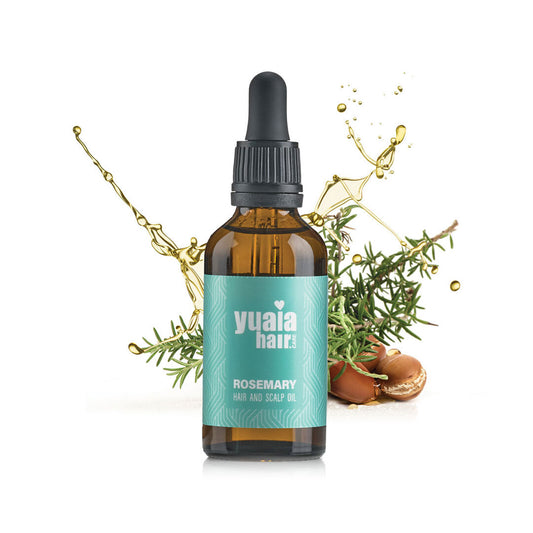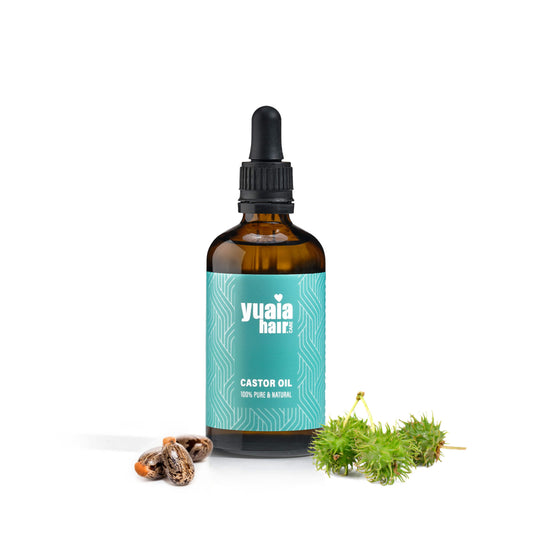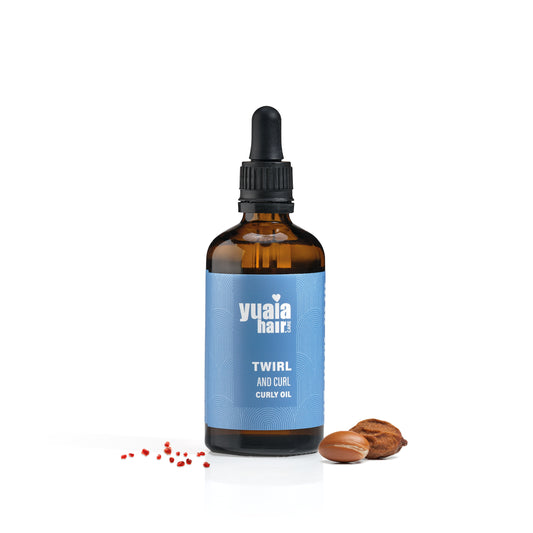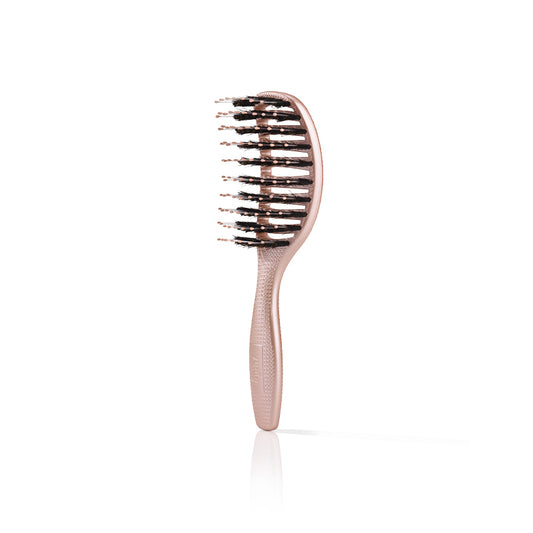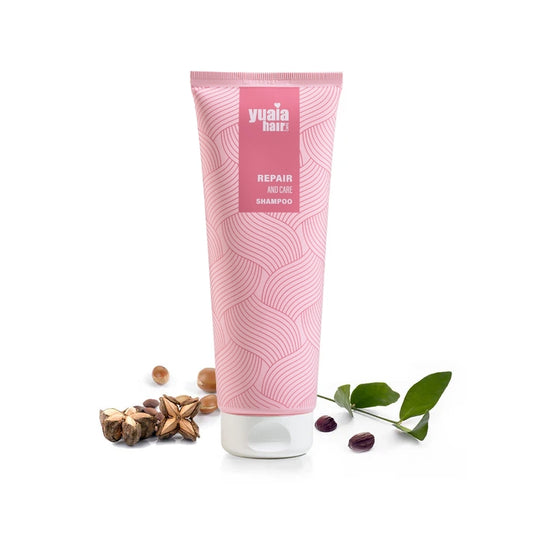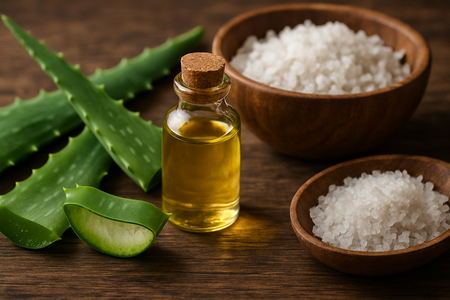
What Causes Oily Scalp and Dandruff?
Understanding the root causes of an oily scalp and dandruff is essential for finding effective natural remedies. Excess sebum production is a primary factor, leading to an oily scalp that can attract dirt and exacerbate dandruff. Additionally, fungal growth, particularly from the Malassezia yeast, is a common contributor to dandruff. By addressing these underlying causes, natural remedies can offer a more sustainable solution.
As we delve into specific natural remedies, it's important to consider their benefits and how they can be integrated into your hair care routine. Remedies like tea tree oil, apple cider vinegar, and aloe vera have gained popularity for their ability to tackle these issues effectively. Each of these ingredients offers unique properties that can help balance oil production, reduce fungal growth, and soothe scalp irritation.
What Makes Tea Tree Oil Effective for Scalp Health?
Tea tree oil is a renowned natural remedy for addressing oily scalp and dandruff due to its potent antimicrobial and antifungal properties. These qualities help combat the Malassezia yeast, a common contributor to dandruff, while also reducing excess oil production. However, it's crucial to dilute tea tree oil with a carrier oil, such as coconut or jojoba oil, before application to prevent irritation. A recommended practice is to mix a few drops of tea tree oil with a tablespoon of carrier oil, apply it to the scalp, and let it sit for 15-20 minutes before rinsing thoroughly.
How Can Apple Cider Vinegar Balance Your Scalp?
Apple cider vinegar is celebrated for its ability to balance the scalp's pH levels, which can help manage oiliness and reduce dandruff. By restoring the natural acidity of the scalp, it creates an environment less conducive to fungal growth. For an effective apple cider vinegar rinse, mix one part vinegar with two parts water, apply it to the scalp after shampooing, and leave it on for a few minutes before rinsing. This rinse can be used once or twice a week to maintain a balanced scalp environment.
Aloe Vera: A Soothing Solution for Scalp Irritation
Aloe vera is prized for its anti-inflammatory and moisturizing properties, making it a gentle remedy for scalp irritation and seborrheic dermatitis. It helps soothe itchiness and reduce redness, while its hydrating effect ensures the scalp remains moisturized without becoming oily. To use aloe vera, apply pure aloe gel directly to the scalp, leave it on for 20-30 minutes, and then rinse thoroughly. Regular use can help alleviate symptoms and promote a healthier scalp.
The Role of Coconut Oil in Combating Dandruff
Coconut oil is an excellent natural remedy for dandruff due to its moisturizing and antifungal properties. It helps reduce dryness and flakiness while fighting the fungi that contribute to dandruff. To incorporate coconut oil into your routine, warm a small amount in your hands and massage it into the scalp. Leave it on for at least 30 minutes, or overnight for deeper conditioning, before washing it out with a gentle shampoo. This treatment can be repeated once or twice a week for optimal results.
How to Safely Use Natural Remedies for Scalp Care
When using natural remedies for oily scalp and dandruff, it's important to prioritize safety and effectiveness. Begin by performing a patch test to ensure that your skin does not react adversely to a new ingredient. This is particularly important for potent substances like tea tree oil, which should always be diluted with a carrier oil before application. Customize the concentration of your remedies based on your scalp's sensitivity to prevent irritation.
Innovative Combinations: Mixing Remedies for Enhanced Benefits
Combining natural ingredients can enhance their individual benefits, offering a more comprehensive approach to scalp care. For instance, mixing aloe vera with a few drops of tea tree oil can create a soothing and antifungal treatment that addresses both oiliness and dandruff. Adjust the ratios according to your scalp's response, and consider alternating different combinations to find the most effective routine for your needs.
Frequently Asked Questions
Can Natural Remedies Completely Replace Medicated Treatments?
Natural remedies can effectively manage symptoms of oily scalp and dandruff for many people. However, in severe cases, it may be necessary to seek professional advice and potentially use medicated treatments alongside natural methods.
How Often Should I Apply These Remedies?
The frequency of application depends on the specific remedy and your scalp's response. Generally, using natural treatments once or twice a week is sufficient, but it's important to monitor your scalp for any signs of irritation and adjust accordingly.
What Should I Do If I Experience Irritation?
If you experience irritation from a natural remedy, discontinue use immediately. Rinse your scalp with cool water and consider consulting a dermatologist for further advice. It's crucial to identify which ingredient caused the reaction to avoid future issues.
Additional Tips for Maintaining Scalp Health
Enhancing your natural remedy routine with the right tools can further promote scalp health. Using a boar bristle brush can help distribute natural oils evenly across your scalp, reducing excess oil buildup. Additionally, opting for gentle, sulfate-free shampoos can complement natural treatments by preventing further irritation and maintaining a balanced scalp environment.
 2-4 day UK delivery
2-4 day UK delivery
 25.000+ satisfied customers
25.000+ satisfied customers
 Satisfaction Guarantee
Satisfaction Guarantee



















